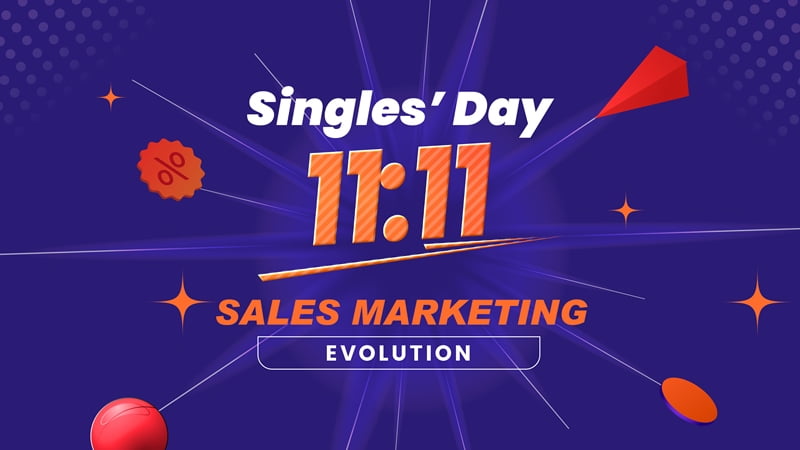In recent years, November 11th has become more than just another date on the calendar in Singapore. It’s the day of the highly anticipated 11.11 sales event, also known as Singles’ Day. Originally a Chinese holiday celebrating singledom, it has now transformed into a global shopping extravaganza. Singapore, in particular, has witnessed a remarkable evolution in the marketing strategies and consumer behavior associated with 11.11 sales. In this article, we will delve into the journey of 11.11 sales marketing in Singapore, from its humble beginnings to its current state of retail frenzy.
The Humble Beginnings
The 11.11 sales event was introduced in Singapore in the early 2010s, primarily by e-commerce giants like Lazada and Zalora. It was initially perceived as a quirky, foreign shopping festival with a focus on online sales. At that time, the marketing strategies employed were relatively simple, with discounts, flash sales, and email promotions being the norm.
However, these modest beginnings laid the foundation for what would become a massive retail phenomenon. Singaporeans were quick to embrace the concept of a shopping holiday, and it didn’t take long for 11.11 to gain traction. Brands and retailers soon recognised its potential as a major sales event and began investing more heavily in marketing campaigns.
The Rise of Omnichannel Marketing
One of the significant shifts in 11.11 marketing in Singapore has been the rise of omnichannel marketing strategies. As consumer behavior evolved, retailers understood that shoppers were increasingly utilising multiple channels for their purchasing decisions. Consequently, they began integrating both online and offline strategies to create a seamless shopping experience.
Retailers like Shopee and Qoo10 leveraged this trend by combining their online platforms with brick-and-mortar stores. They offered exclusive in-store discounts, QR codes for online purchases, and real-time inventory updates to attract tech-savvy shoppers who wanted the convenience of online shopping along with the sensory experience of in-store browsing.
Influencer and Social Media Marketing
The advent of social media and influencer marketing has played a pivotal role in the evolution of 11.11 sales marketing in Singapore. Brands now collaborate with popular influencers and celebrities to create buzz and drive sales during the event. Influencers use their platforms to share exclusive deals, unboxing videos, and testimonials, which resonate with their followers.
Platforms like Instagram, TikTok, and YouTube have become powerful tools for promoting 11.11 sales. Brands employ creative storytelling, engaging visuals, and user-generated content to connect with their audience and build anticipation for the event. This social media-driven marketing approach has not only increased brand visibility but also contributed to a sense of community among shoppers.
Personalisation and Data Analytics
The modern 11.11 sales marketing landscape in Singapore is heavily data-driven. Retailers now collect and analyse vast amounts of consumer data to tailor their marketing strategies. Personalisation is key, as companies aim to offer individualised promotions and recommendations to their customers.
Machine learning algorithms and artificial intelligence are employed to predict consumer preferences, recommend products, and optimise pricing. These technologies allow businesses to send targeted emails, push notifications, and advertisements, ensuring that shoppers receive offers relevant to their interests.
The Future of 11.11 Sales Marketing in Singapore
As the 11.11 sales event continues to evolve, it is evident that the marketing strategies will become even more sophisticated. Augmented reality (AR) and virtual reality (VR) are likely to play a more prominent role, offering consumers immersive shopping experiences from the comfort of their homes. Additionally, sustainability and ethical practices may become critical marketing points as consumers become more conscious of their environmental impact.
The evolution of 11.11 sales marketing in Singapore reflects the changing dynamics of retail and consumer behavior in the digital age. What began as a modest online event has transformed into a nationwide phenomenon, with retailers employing omnichannel strategies, influencer marketing, personalisation, and data analytics to maximise sales. As the event continues to grow and adapt to new technologies and trends, the future of 11.11 sales marketing in Singapore promises even more exciting developments for both retailers and consumers.


